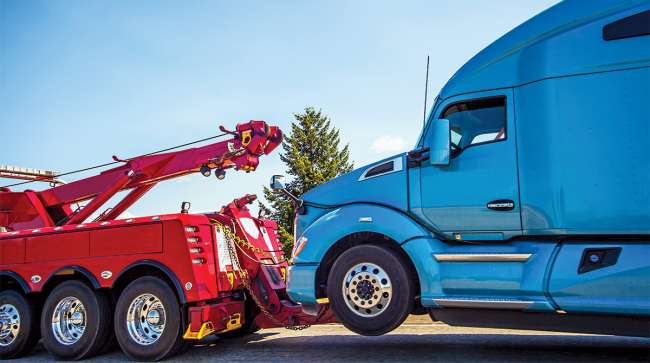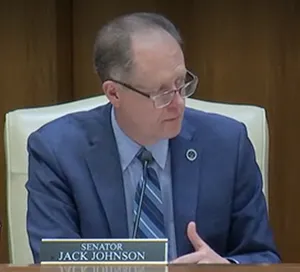Staff Reporter
Tennessee in July to Curb Predatory Vehicle Booting, Towing

[Stay on top of transportation news: Get TTNews in your inbox.]
In a move to combat predatory towing in the state, after July 1 Tennessee will prohibit installation of a boot on any truck or trailer clearly identified as a commercial vehicle with either a commercial license plate or a U.S. Department of Transportation number.
“Individuals out there will ... buy one of these booting devices and show up in parking lots and start putting boots on people’s cars, and then [are] waiting for them to come out of the restaurant and telling them to pay $200 or something in order to get that boot removed,” said state Sen. Jack Johnson, who alongside state Rep. Jake McCalmon crafted the “Modernization of Towing, Immobilization and Oversight Normalization (MOTION) Act,” which Gov. Bill Lee enacted May 28. Johnson said unscrupulous towers should “be held accountable.”
Predatory towing practices have also become an issue for truckers, said Donna England, president and CEO of Tennessee Motor Truck Association. England provided input to legislators drafting the bill and expressed gratitude for having a law on the books that can help end predatory towing practices.
“This legislation not only helps Tennesseans but will also benefit truckers across the country,” she said.
Tennessee-registered towers have historically been able to conduct business in neighboring Arkansas.

Johnson said unscrupulous towers should “be held accountable.” (Tennessee General Assembly)
England said predatory towing activities came to her attention last fall when Alabama Trucking Association President and CEO Mark Colson shared that one of his trucking company members became ensnared by an unscrupulous tower in Memphis.
Shortly afterward, England began hearing from her members about similar incidents in Memphis, which is a known hot spot for the problem. It also has become an issue in Arkansas and Mississippi.
“One member was towed from West Memphis, Ark., and charged $3,500, while another was towed from Mississippi with a medium-duty wrecker, which damaged their vehicle, and was charged $4,500. Numerous reports indicated trucks being towed from various locations around Memphis,” she said, including truck stops and parking lots with no posted signs regarding parking. “Our goal is not to harm reputable towing companies but to create a fair playing field for everyone involved. We have several towing companies in our association who are fantastic to work with.”
Paul Burnett, director of the Arkansas Towing and Recovery Board, told Transport Topics about a recent case involving a Tennessee towing company whose booting and towing license to operate in Arkansas was suspended for a year following a complaint about predatory practices by a Tennessee trucking company. (The towing company can appeal the suspension.)
Under the new Tennessee law, vehicle booting will only be legal in commercial parking lots where a licensed parking attendant wearing easily identifiable proof of employment is physically present and able to remove the boot within 45 minutes from being contacted. Boot removal fees are capped at $75 and payments can be made with credit/debit cards. Parking lot signs must warn that unpaid parked vehicles there can be booted or towed. Also, the law requires that vehicle owners in Tennessee be properly notified if their vehicle is towed, sold or demolished by a towing company.
In addition, the state Department of Revenue is being directed to create a motor vehicle portal by July 2025 that is accessible to law enforcement, towing companies, vehicle owners and lien holders containing all public notifications about unclaimed vehicle sales.
Want more news? Listen to today's daily briefing above or go here for more info
American Trucking Associations President Chris Spear applauded Tennessee’s new law.
“Predatory towing companies that hold equipment and cargo hostage with inflated, excessive and fraudulent invoices tarnish the reputation of the entire towing sector. They have taken advantage of the trucking industry for far too long, and we refuse to continue making these ransom payments any longer,” Spear said. “ATA’s federation of state associations is prepared to fight back against unscrupulous companies that target our industry by injecting more accountability and fairness in state and local laws pertaining to towing.”
England noted, “I encourage anyone to reach out to us if these issues persist after July 1, 2024.”




